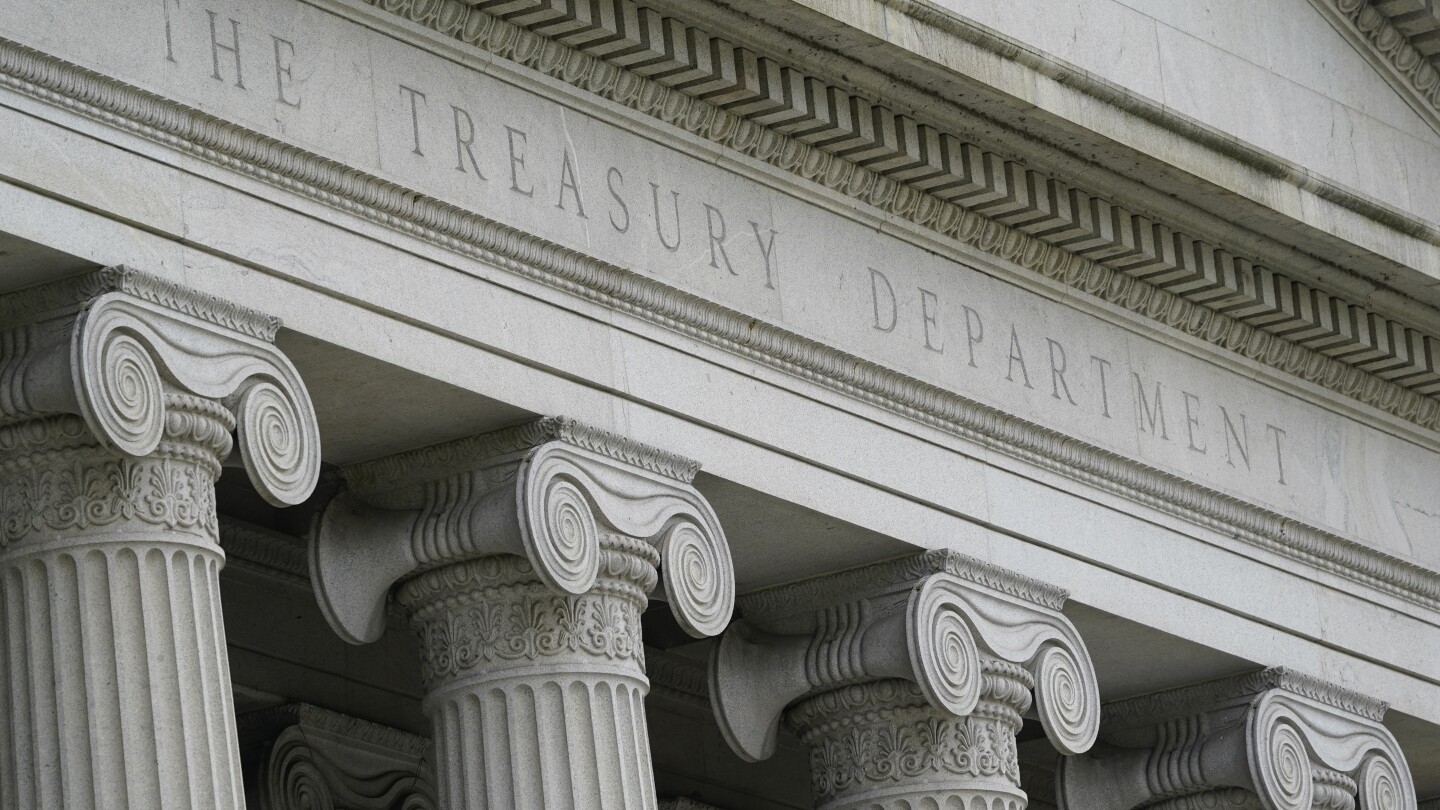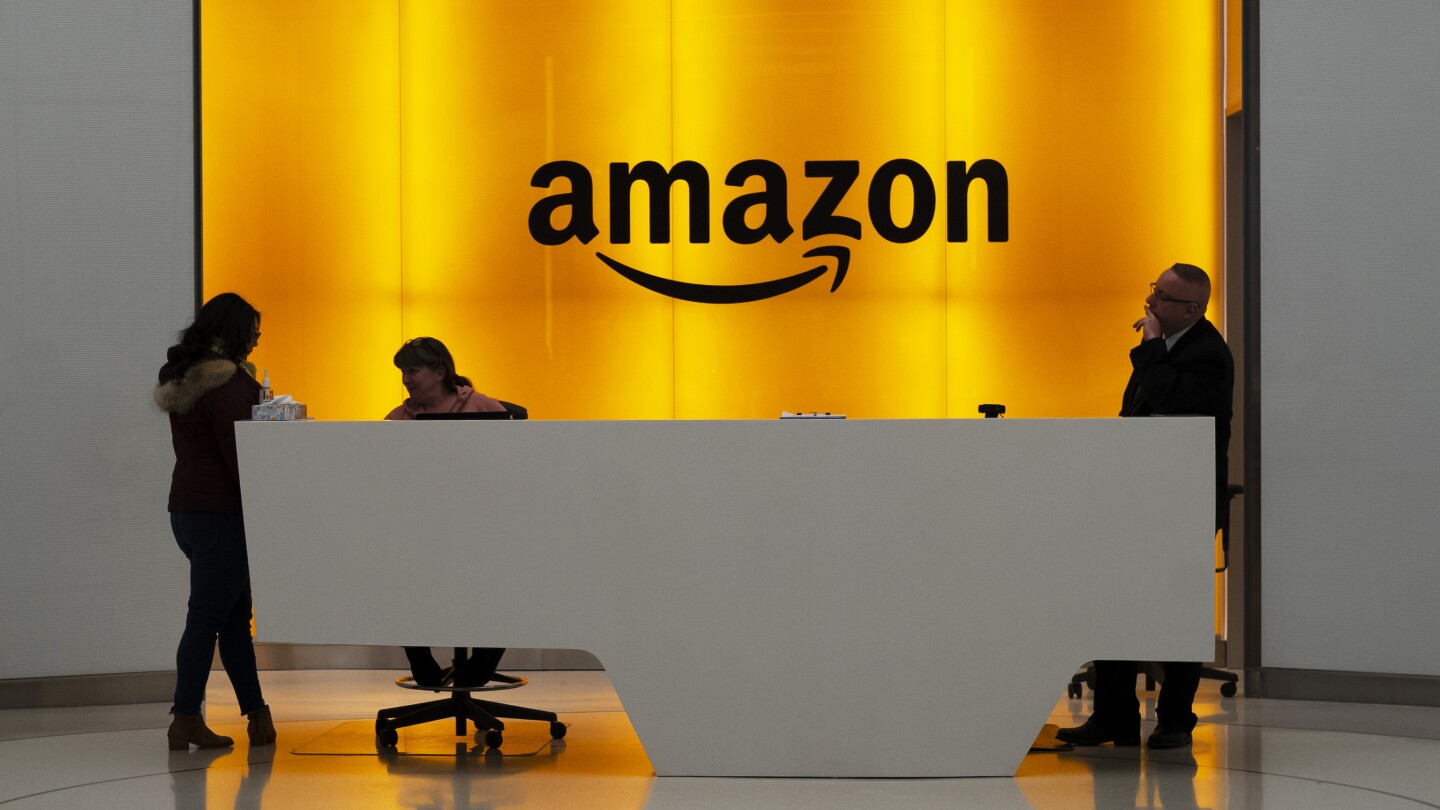International
Dubai’s next big thing? Perhaps $5 billion man-made ‘moon’…
Published
1 year agoon

DUBAI, United Arab Emirates (AP) — Who says you cannot reach for the moon? A proposed $5 billion real estate project wants to take skyscraper-studded Dubai to new heights — by bringing a symbol of the heavens down to Earth.
Canadian entrepreneur Michael Henderson envisions building a 274-meter (900-foot) replica of the moon atop a 30-meter (100-foot) building in Dubai, already home to the world’s tallest building and other architectural wonders.
Henderson’s project, dubbed MOON, may sound out of this world, but it could easily fit in this futuristic city-state. Dubai already has a red-hot real estate market, fueled by the wealthy who fled restrictions imposed in their home countries during the coronavirus pandemic and Russians seeking refuge amid Moscow’s war on Ukraine.
And even though a previous booms-and-bust cycle saw many grand projects collapse, Henderson and others suggest his vision, funded by Moon World Resorts Inc., where he is the co-founder, might not be that far-fetched.
“We have the biggest ‘brand’ in the world,” Henderson told The Associated Press, alluding that the moon itself — the heavenly body — was his brand. “Eight billion people know our brand, and we haven’t even started yet.”
The project Henderson proposes includes a destination resort inside the spherical structure, complete with a 4,000-room hotel, an arena capable of hosting 10,000 people and a “lunar colony” that would give guests the sensation of actually walking on the moon.
The MOON would sit on a pedestal-like circular building beneath it and would glow at night. Henderson discussed the project at the Arabian Travel Market earlier in May in Dubai.
Already, artist renderings commissioned by Moon World Resorts have played with the location for his MOON — including at the Burj Khalifa, the world’s tallest building at a height of 828 meters (2,710 feet). Others have placed it at the Dubai Pearl, a long-dormant project now being destroyed near the man-made Palm Jumeirah archipelago, and on its unfinished sister, the Palm Jebel Ali.
The Pearl and the Palm Jebel Ali represent two “white elephant” projects left over from the 2009 financial crisis that rocked the sheikhdom and forced Abu Dhabi, the capital of the United Arab Emirates, to provide Dubai with a $20 billion bailout.
Now nearly 15 years later, Dubai largely has turned around. Rents on average across Dubai are up 26.9% year-on-year, even with anti-price-gouging protections. Dubai saw 86,849 residential sales last year, beating a previous record of 80,831 from 2009.
“Dubai is in a completely different world compared to” 2009, said Lewis Allsopp, the CEO of the prominent Dubai real estate agency Allsopp & Allsopp. Launched products are “selling out on the spot.”
Inflation and interest rate hikes around the world have led to fears of a global recession. The UAE’s currency, the dirham, is pegged to the dollar, meaning it has followed lock-step the hikes imposed by the Federal Reserve.
But cash still remains king for Dubai buyers, with fourth-fifths of transactions paid in currency without financing in 2022, said Faisal Durrani, the head of Middle East research at real estate agency Knight Frank.
“You could argue that the interest rate hikes that are taking place, to an extent the market is a little bit shielded from that given the fact that so much of the transactional activity has been driven by cash,” Durrani said.
Other major projects are moving ahead.
Nakheel, the state-owned developer behind the Palm Jebel Ali, has relaunched development plans for it. The developer also unveiled a multibillion-dollar plan to build 80 resorts and hotels on the man-made Dubai Islands, though it remains largely empty and under the flight path of the nearby Dubai International Airport, the world’s busiest for international travel.
The MOON project also includes space for a possible casino as well. Gambling remains illegal in the UAE, a federation of seven hereditarily ruled sheikhdoms on the Arabian Peninsula. However, major brands like Caesar’s Palace already exist or hope to build in Dubai. Wynn Resorts plans to build a $3.9 resort in Ras al-Khaimah north of Dubai with gambling to open in 2027 — meaning a change to the law is likely to come.
Like other high-profile, eye-catching marvels, the MOON could fit well into “the legitimacy formula of Dubai’s ruling elite,” said Christopher Davidson, a Middle East expert who wrote the recent book “From Sheikhs to Sultanism.” Dubai also hosts the UAE’s space center, which has sent a probe to Mars and unsuccessfully tried to put a rover on the moon.
“They can be seen as a non-democratic elite but nonetheless believe strongly in science and progress — and that’s ultimately very legitimizing and a megaproject like this would seem to tick all of those boxes,” Davidson said.
Henderson’s plan would go a step further than other globe-shaped projects, such as the MSG Sphere, a $2.3 billion dome blanketed by LED screens, that is set to open in Las Vegas later this year.
His structure would be fully spherical, and could be illuminated alternatively as a full, half or crescent moon.
The brightness may not go down well with potential neighbors — plans to build another MSG Sphere in London were halted after residents protested the significant light pollution and disruption the structure would cause.
“It’s hard to please everybody,” Henderson acknowledged. “You might need dark curtains.”
___
Associated Press writer Jon Gambrell in Dubai, United Arab Emirates, contributed to this report.

Business
John Deere ends support of ‘social or cultural awareness’ events, distances from inclusion efforts
Published
1 week agoon
July 17, 2024
NEW YORK (AP) — Farm equipment maker John Deere says it will no longer sponsor “social or cultural awareness” events, becoming the latest major U.S. company to distance itself from diversity and inclusion measures after being targeted by conservative backlash.
In a statement posted Tuesday to social media platform X, John Deere also said it would audit all training materials “to ensure the absence of socially-motivated messages” in compliance with federal and local laws. It did not specify what those messages would include.
Moline, Illinois-based John Deere added “the existence of diversity quotas and pronoun identification have never been and are not company policy.” But it noted that it would still continue to “track and advance” the diversity of the company, without providing further details.
The move from the company known on Wall Street as Deere & Co. arrives just weeks after rural retailer Tractor Supply ended an array of its corporate diversity and climate efforts. Both announcements came after backlash piled up online from conservative activists opposed to diversity, equity and inclusion efforts, sponsorship of LGBTQ+ Pride events and climate advocacy.
Conservative political commentator and filmmaker Robby Starbuck appeared to lead the criticism of both companies on X.
Starbuck posted that John Deere’s announcement marked “another huge win in our war on wokeness,” but said that it still wasn’t enough, calling on the company to completely eliminate its DEI policies and no longer participate in Corporate Equality Index scoring from the Human Rights Campaign, the largest advocacy group for LGBTQ+ rights in the U.S.
Starbuck, a 35-year-old Cuban American, told The Associated Press that “it’s not lost on me my kids would benefit from this stuff,” but he opposes hiring decisions that factor in race, as well as DEI initiatives, employee resource groups that promote non-professional activities and any policies that in his view allow social issues and politics to become part of a company culture.
“People should go to work without having to feel like they have to behave a certain way in order to be acceptable to their employer,” he said.
Starbuck and other conservative activists celebrated Brentwood, Tennessee-based Tractor Supply for taking a more aggressive approach than John Deere last month by pledging to eliminate all of its DEI roles while retiring current DEI goals and stop submitting data to the Human Rights Campaign.
But the move also sparked outrage from critics of the new position, who have argued that Tractor Supply is giving in to hate.
John Deere’s move has faced similar pushback. Eric Bloem, vice president of programs and corporate advocacy at the Human Rights Campaign, called the announcement “disappointing” and “a direct result of a coordinated attack by far-right extremists on American business.”
National Black Farmers Association President John Boyd Jr. called for the resignation of Deere & Co CEO John C. May and a boycott of the company on Wednesday.
The organization said that Deere “continues to move in the wrong direction” in regards to DEI and has “failed to show its support” for Black farmers since NBFA’s founding. It also noted Tuesday’s announcement arrives one month after the company agreed to pay $1.1 million in back wages and interest to 277 Black and Hispanic job applicants after the Labor Department alleged hiring discrimination.
The conservative backlash against DEI has extended to companies across industries, including previous boycott campaigns against Bud Light and Target over their LGBTQ+ marketing. Starbuck said he has a list of companies he is thinking of posting content about, starting with ones that have traditionally conservative customer bases. He declined to name his next target.
The ensuing changes to policy and corporate commitments aren’t just coming from company boardrooms. Leading HR organization Society for Human Resource Management last week announced that the 340,000-member lobbying and advocacy group will drop “equity” from its diversity and inclusion approach, although it said it remains committed to advancing it.
“Effective immediately, SHRM will be adopting the acronym ‘I&D’ instead of ‘IE&D,” the group said in a statement posted on LinkedIn. “By emphasizing Inclusion-first, we aim to address the current shortcomings of DE&I programs, which have led to societal backlash and increasing polarization.”
The move, in turn, triggered a backlash among LinkedIn users, some calling it “backward” and “shameful.” Others replied that they were planning to cancel their SHRM memberships.
Still others stress that prioritizing equity is critical for leveling the playing field, saying this kind of omission signals a shift in messaging that could have chilling consequences on efforts toward workplace equality.
In an interview with The AP on Wednesday, SHRM’s president and CEO Johnny C. Taylor, Jr. said the organization’s focus groups found general consensus around prioritizing diversity and inclusion, but “the E triggered like all sorts of emotions and responses.”
“You either loved it, you hated it,” he said. “If it’s so polarizing that people just abandon it, then we all lost.”
Legal attacks against companies’ diversity, equity and inclusion efforts have also drawn more attention following the Supreme Court’s 2023 ruling to end affirmative action in college admissions. Many conservative and anti-DEI activists have been seeking to set a similar precedent in the working world.
“The blowback and the potential vulnerabilities are real,” said Jen Stark, co-director of the Center for Business and Social Justice at BSR, a consulting network of more than 300 companies.
A vast majority of companies are “not taking the bait” and keeping policies in place “because it makes good business sense and it’s also the right thing to do,” she said. Still, she added, external pressures are building up.
The U.S. is also in a fraught presidential election year, with bubbling conversations about the prospect of Project 2025 — a term for the Heritage Foundation’s nearly 1,000-page handbook for the next Republican administration, which has become a cudgel Democrats are wielding against former President Donald Trump.
Stark noted that companies across industries are bracing for the prospects of potential changes in terms of their federal contracts, for example, which have historically been a powerful way to promote equity in workplaces.
That doesn’t mean companies will stop their DEI efforts entirely, she added, but they may have to change language or find new workarounds.
“All these flash points that companies are, sort of, limping between is the new normal,” she said.
___
AP Business Writer Lisa Leff in London contributed to this report.
___ Savage is a reporter on the women in the workforce team. The Associated Press’ women in the workforce and state government coverage receives financial support from Pivotal Ventures. AP is solely responsible for all content. Find AP’s standards for working with philanthropies, a list of supporters and funded coverage areas at AP.org.
Business
U.S hits Mexican accountants and firms with sanctions for timeshare scams that support drug cartel
Published
1 week agoon
July 16, 2024
WASHINGTON (AP) — The U.S. on Tuesday imposed sanctions on a group of Mexican accountants and firms allegedly linked to a timeshare fraud ring run by the Jalisco New Generation drug cartel.
Three accountants were hit with sanctions, along with four Mexican real estate and accounting firms. In addition, Treasury and the FBI issued a notice to banks with a reminder to be vigilant in detecting and reporting timeshare fraud perpetrated by Mexico-based transnational criminal organizations.
Time share fraud targeting Americans results in tens of millions of dollars in losses annually. In 2022, the FBI’s Internet Crime Complaint Center received over 600 complaints with losses of roughly $39.6 million from victims contacted by scammers regarding timeshares owned in Mexico.
The new sanctions come after the U.S. in April 2023 sanctioned members or associates of the Jalisco New Generation drug cartel for timeshare fraud that allegedly targeted elderly Americans.
“Cartel fraudsters run sophisticated teams of professionals who seem perfectly normal on paper or on the phone – but in reality, they’re money launderers expertly trained in scamming U.S. citizens,” said Treasury Undersecretary Brian Nelson. “Unsolicited calls and emails may seem legitimate, but they’re actually made by cartel-supported criminals. If something seems too good to be true, it probably is.”
The FBI shares tips on how to avoid timeshare fraud: Be cautious of uninvited calls, texts, or emails from anyone interested in a timeshare. Be wary of high-pressure and time-sensitive offers that require an immediate response, research everyone you are in contact with, and contact offices independently to confirm that you’re talking with a real company representative, and hire a real estate agent or lawyer you trust.
Business
Amazon won’t have to pay hundreds of millions in back taxes after winning EU case
Published
8 months agoon
December 14, 2023
LONDON (AP) — Amazon won’t have to pay about 250 million euros ($273 million) in back taxes after European Union judges ruled in favor of the U.S. e-commerce giant Thursday, dealing a defeat to the 27-nation bloc in its efforts to tackle corporate tax avoidance.
The ruling by the EU’s top court is final, ending the long-running legal battle over tax arrangements between Amazon and Luxembourg’s government and marking a further setback for a crackdown by antitrust chief Margrethe Vestager.
The Court of Justice backed a 2021 decision by judges in a lower court who sided with Amazon, saying the European Commission, the EU’s executive branch, had not proved its case that Amazon received illegal state support.
“The Court of Justice confirms that the Commission has not established that the tax ruling given to Amazon by Luxembourg was a State aid that was incompatible with the internal market” of the EU, the court said in a press release.
Amazon welcomed the ruling, saying it confirms that the company “followed all applicable laws and received no special treatment.”
“We look forward to continuing to focus on delivering for our customers across Europe,” the company said in a statement.
The commission said it “will carefully study the judgment and assess its implications.”
The case dates back to 2017, when Vestager charged Amazon with unfairly profiting from special low tax conditions since 2003 in tiny Luxembourg, where its European headquarters are based. As a result, almost three-quarters of Amazon’s profits in the EU were not taxed, she said.
The EU has taken aim at deals between individual countries and companies used to lure foreign multinationals in search of a place to establish their EU headquarters. The practice led to EU states competing with each other and multinationals playing them off one another.







